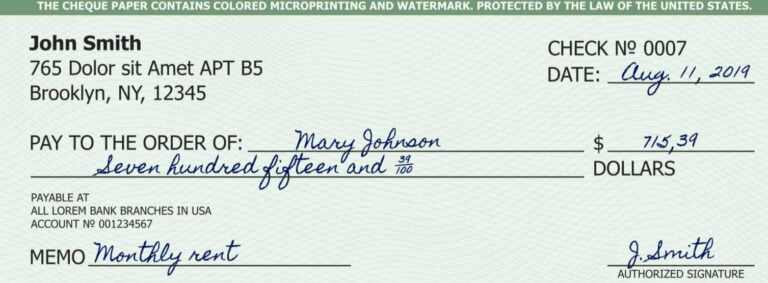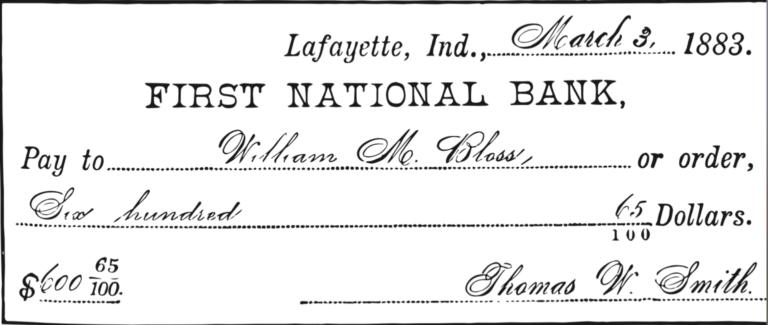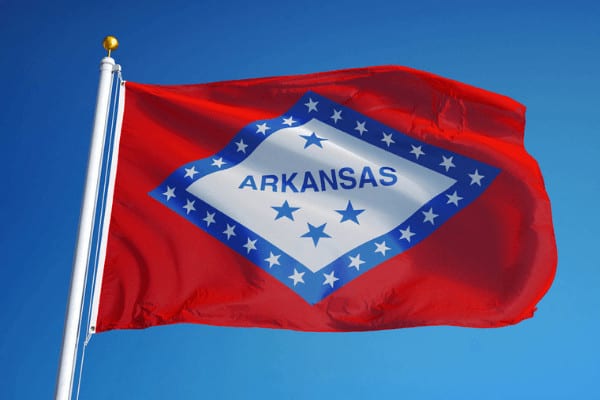
Unclaimed Money Database
Search for Unclaimed Money
We receive referral fees from partners (advertising disclosure)
The information we provide you is free of charge and a result of extensive research by our home warranty experts. We use affiliate links on our site that provide us with referral commissions. While this fact may not influence the information we provide, it may affect the positioning of this information.
(advertising disclosure)
The information we provide you is free of charge and a result of extensive research by our home warranty experts. We use affiliate links on our site that provide us with referral commissions. While this fact may not influence the information we provide, it may affect the positioning of this information.

Unclaimed Money Database 2021
Find out what Arkansas does when the state receives unclaimed property and how you can claim it in our Arkansas ultimate guide.

Your Guide to Unclaimed Property in Arkansas
Known as the Land of Opportunity, Arkansas holds unclaimed money and property until it either finds the owner or the owner finds the state database. As roughly one out of every four residents of the state has money in the system, it’s very possible that you’re one of them. You might have a refund from an old utility company or a bill from a former employer. We recommend looking at the different types of unclaimed money in Arkansas before you search the system.

Thanks to the online system, you can search for your money when you live in Little Rock or another big city like Hot Springs. All Arkansas requires is an internet connection, which means that you can search when you live in other states. You can even list your current address and have your claim form mailed to your home. Arkansas will send a check for the money owed to you to the address that you choose. The Arkansas State Auditor is responsible for holding money and other assets that wind up in the state database. In our ultimate guide to unclaimed money in Arkansas, you’ll learn how to find and claim any type of asset.
What is Unclaimed Money?
You may hear the term “unclaimed money” when watching television or listening to the radio in your car and not know what it means. This term refers to any type of asset that is worth money that the owner does not have. Many states use the term abandoned property to describe these assets. The property may go missing because you moved and didn’t update your address, which left the holder unable to find you. You can also have unclaimed property that you didn’t know you had. This is common when a loved one dies and leaves behind assets for you but no one went through probate or looked at the will.


The National Association of Unclaimed Property Administrators (NAUPA) found that roughly one out of every 10 people who live in the United States have unclaimed money in their names. As of 2020, the nation’s total amount of unclaimed assets totaled more than $49.5 billion. New York and Massachusetts have the most amount of unclaimed assets, but every state has some property that belongs to others. You can check with those divisions to find your money. Our site shows you how to use the database that each state has, but you should take a look at the common sources of unclaimed money first.

Sources of Unclaimed Money
Looking at the different sources or types of unclaimed money gives you an idea of who holds the money. The holder is often the company responsible for overseeing or holding your funds for you. This might be the bank where you opened a savings account or a utility company that charged you a deposit. The holder hands your property over to the state when it cannot get in touch with you. Though some states ask them to make multiple attempts to locate you, others accept the funds if the holder makes just one attempt and waits a minimum of one year. We’ll take a look at the different sources of unclaimed money below.

Insurance
Insurance checks are among the more common types of unclaimed money. The most common example is a check associated with a life insurance policy. When an individual buys life insurance, they need to name at least one beneficiary. This is the person who gets the money held by the policy, which they can use to pay for the deceased’s funeral and any other expenses they left behind. You may also have insurance payments for your car or home. If you were in a car accident, an insurer may have money for you that you didn’t claim. It’s also possible that your home insurer has money that you never got.
Wages
When you leave a job, your employer usually needs to give you one last final paycheck. If you move to a different state or just a new city, your employer may not have an address where they can forward that check. Even if you only worked for a few hours before deciding that a job wasn’t right for you, the law requires that the employer pay you for all of the hours that you worked. You may have checks that cover more than just lost wages, too. Many people find that their former employers had checks that included expenses they paid and paid time off that they never took.
Tax Refunds
As you file your taxes in April, you have the option of having a refund check sent to your home address or deposited directly in your bank account. Not everyone gets their refund checks though. You might move before the check arrives or change bank accounts before the deposit hits. The Internal Revenue Service helps you easily check on the status of your refund check online and see when the money should arrive. You also have the option of using the site to update your information. We recommend that you look at the status of refund checks from past years, too.
Savings
Having a savings account is a great way to save for an emergency or a specific expense such as buying a new car or going on vacation. Most banks ask that customers use their accounts at least once a year to keep them in good standing. As long as you log in and view your account or transfer money, you don’t need to worry about losing your savings account. One or more banks may have savings accounts that you lost over the years along with those that you opened with another person such as your former spouse or one of your parents.
Stocks and Bonds
A bond is essentially a piece of paper that shows you own an asset, while a stock is a certificate that shows you own a portion of a company or investment. Bonds can also include those issued by the Treasury Department. You may receive one or more bonds as a child but lose them before they mature, which is when they are worth the amount printed on the paper. The Treasury Department has a simple website that lets you search for missing bonds with your social security number. State databases maintain records of lost and missing stocks and bonds.
Pensions
Paying into a pension helps you save for the future. When you retire, you get a set amount of money each month from your pension to cover your living expenses. If a loved one had a pension and passed away, you have the chance to the remaining money. You usually need your birth certificate and other proof that you’re the individual’s child along with evidence that the person passed away. Though you can request that the pension funds go to your pension account, you may have the option of getting a check for the remaining amount.
Security Deposits
Moving to a new address often requires that you put down multiple deposits. For example, the electric and gas companies may run your credit and base the amount that you need to pay on your credit history. Some will apply the deposit to a future bill as long as you make your payments on time. Others will hold the money until you ask for it back. If you move and turn off your utilities, the companies may have refund checks that they send to the state as they do not know your new address. You may also find a security deposit check from a former landlord.
Royalty Payments
A royalty payment is an agreement between two people or an individual and a company. This often happens when someone owns land with natural resources that they don’t need but someone else wants such as natural gas or oil. The company agrees to pay a percentage of the money they make off the resources to the owner of the land. These payments do not go away when the owner dies. As long as someone owns the property and the company wants the resources, they need to keep paying. You may find that your loved one put the payments in your name.
Checking Accounts
In the same way that you can lose track of a savings account, you can also misplace a checking account. If you only use that account to pay one bill and switch to a different account, you may find that you forget about it. Many people have unclaimed money from banks because they thought they closed their accounts but didn’t complete all of the required paperwork. Even if the bank account has just a few dollars in it, the money still belongs to you, which is why you can go through your state to claim it.
Safe Deposit Boxes
A safe deposit box gives you a secure place to store important and valuable items such as your birth certificate and expensive jewelry you inherited. Most states allow holders to turn over the contents of these boxes if the owner stops making their payments for a year or longer. Depending on where you live, you may find that the state sells the boxes at auction and saves the money raised for the owner or that you can claim the full contents of the box. Safe deposit boxes can go to states after the owners pass away, too.
Gift Certificates
Though rare, you may find gift certificates listed in unclaimed money databases. Not all states will hold gift certificates, but some do because of state laws. A good example is a gift certificate given to a specific person that bears their name. You might get a gift card that acts as a credit card and has your name printed across the front. If you do not use all of the money secured by the card, the company that issued it needs to contact the state and treat it as abandoned property. You should get the card’s full value back in the form of a gift certificate or check.
Court Deposits
A court deposit is any type of deposit that the court holds until the end of a case. One example is the bond put down by the administrator of a probate case. This bond shows that the individual will follow the wishes stated in the will. Another example is the deposit that someone pays when they face criminal charges, which shows that they will attend future hearings. The court will only hold that deposit for a short period before turning it over to the state, which will try to locate the owner.
Estate Proceeds
You can also use unclaimed property databases to find estate proceeds. The estate refers to everything that a deceased person owned. You usually need to go through probate to make sure that you pay any bills they left behind before you can take over their property. Most states give you up to five years to open a probate case before it will take the property that the person left behind. Their databases can help you claim the property as the next of kin, such as any paychecks they didn’t claim and any remaining money in their bank accounts.
How to Find Unclaimed Money
When it comes to finding unclaimed money, you should start with the state where you currently live. You can then expand your search to states where you once lived. It’s often helpful to look at states where your loved ones lived, too. Let’s say that your mother lived in Nevada for several years before moving to Colorado. You may find that she never picked up her final paycheck, which you can now claim. Many people buy life insurance policies in the states where they lived. Those insurers occasionally have a difficult time finding the named beneficiary and letting them know that they have money they can claim.
No matter which database you use, you need some basic information to search. You can search with your full name or look for your last name to find assets that belong to others in your family. Some assets require your date of birth or social security number to verify that the funds belong to you. Once you claim your money, you’ll likely need to submit a claim form and provide proof of your identity. We recommend that you check state databases as well as Missing Money, which is a website that handles claims for several states. You can use the chart below to find out more about looking for unclaimed money in specific states.
Search for Unclaimed Money by State
Quickly Search For Unclaimed Money
Useful Resources
- What is Unclaimed Property? – National Association of Unclaimed Property Administrators
- Missing Money
- What is Unclaimed Property and Why Should You Care? – Eide Bailey
- Unclaimed Funds – Julia Kagan, Investopedia
- Unclaimed Property: What is it and What are the Risks? – Luke A. Sims CPA, Investopedia
- Unclaimed Property: What is it and How Does it Work? – LORMAN
- The Top States for Unclaimed Money – Nick Wallace, Smart Asset
Disclaimer: OurPublicRecords mission is to give people easy and affordable access to public record information, but OurPublicRecords does not provide private investigator services or consumer reports, and is not a consumer reporting agency per the Fair Credit Reporting Act. You may not use our site or service or the information provided to make decisions about employment, admission, consumer credit, insurance, tenant screening, or any other purpose that would require FCRA compliance.
